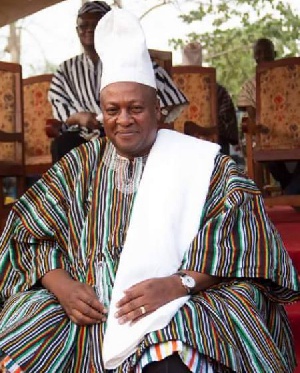I rarely confute a fellow columnist periodical, but on this occasion, I could not observe my own ordinance, for I have to break my oath and set the records straight.
So, I shall seek to deconstruct an opinion which is antithetical to Mr Agbenu’s sophistic periodical, captioned: ‘Fantes, Asantes, Ewes, Gas etc., all feel superior to northerners’ (see: ghanaweb.com-19/06/2016).
Mr Agbenu writes: “People say Asantes feel superior than and therefore look down upon Northerners”. “Its true but I say, all those who say that are hypocrites. In fact, all the Southern tribes traditionally feel superior than and look down upon Northerners.”
Even though I agreed with Mr Agbenu on his preceding claim to some extent, I would like to suggest that he belied the true facts on descriptive substitutions in Ghana, for epithets aren’t reducible to only the Northerners.
Per Mr Agbenu’s analysis, can we then draw an inference that some Northerners also call Asantes names such as “Kabonga” and therefore they also feel superior to Asantes, hence name calling? No.
The fact of the matter is descriptive nicknames have become part and parcel of human life throughout the world.
Take for example, Ghanaians in UK sarcastically refer to Jamaicans as “Ahwediemfoo” (meaning people from sugar cane plantation). Similarly, an Afro American is referred to as “Akata”. English people referred to Scottish people as “Jocks” and Irish as “Junkies”.
Mr Agbenu continues: “I have lived in all the Southern regions and I confirm these values and sentiments around Asantes, Fantes, Akims, Akuapems, Sefwis, Kwawus, Brongs , Ahantas, Denkyiras, Agonas, Efutus, Twifus etc.”
“They all refer to Northerners as "pepefoo: or " ntafoo".” “It's not Asantes alone who make those references.”
Once again, Mr Agbenu claim is fallacious, for “pepefoo or ntafoo aren’t derogatory but a descriptive substitution for people from the North.
The evidence can be found in a comment posted by a discussant and a columnist-Kofi Ata, Cambridge, UK.
Kofi Ata deconstructs: “Charles Agbenu, whilst I do not dispute that all ethnic groups in Ghana look down upon others, I disagree with you that pepeni or pepe and ntafuo are derogatory”.
“The word pepeni is from the Akan word periperini (from the word exact, truth or honesty) that had been contaminated into pepeni”. “Periperini means the honest one”. “When the Northerners came to the south to work they were so honest that the Akans referred to them as being periperi”.
“That is, their word is their word, no was no, and yes was yes”. “One could leave their valuables, money in the house and they would not touch it”. “That is the origin of the word”.
“Ntafuo is also from the Akan word ntaa (double or twins). That was also because they moved in at least twos”. “When you engaged one in your house, the next time, he came with a brother asking if you could assist him with a job”. “Therefore the ntafuo (the twins).”
I cannot agree more with Kofi Ata, for I used to call my best pal at Prempeh College “pepeni” and, he, in turn, called me “Kabonga”, needless to say, we respected each other and did not feel superior to ones tribe.
Kofi Ata proceeds: “One other confidential by controversial information our grandmother shared with us that I did not include in the article but I can now confidently share it (because I saw the Otmufuo himself confirm it in a video on the Kumawu chieftancy dispute I watched last night), was that we Akan royals arranged for Northern men to have children with royal women whose children are likely to ascend onto the stool so that the male children (potential kings and chiefs) will bear the good qualities and characteristics of Norther men”. “(strong, tall, handsome, hardworking, etc)”.
“So do not be surprised that most Akan kings and chiefs could be bearing genes of northerners”.
Based on Kofi Ata’s exposition, I, and many Akans could be bona fide “pepefoo” unbeknownst, so what the sense in looking down on a known “pepeni?”
“It may be true that Southerners may look down on Northerners but I can tell you that we secretly admire them for their good characteristics of hard working, being bold, honest, etc”.
Mr Agbenu pontificates further: “I tell you, Ewes also feel superior than Northerners and derogatorily refer to Northerners as "dzogbadzitors". “Gas, as well call them "suno" to despise them”.
Well, I do not have my fingers on the pulse of Ewe and Ga languages, so it will be unfair for me to seek to interpret the exact meaning of those appellations. All the same, I will be amazed if those epithets are being used deliberately to cast slur on Northerners.
Mr Agbenu avers: “That's the true traditional setting in Ghana.”
I would like to remind Mr Agbenu that an epithet may be used derogatory or innocuously as descriptive substitute for the name or title of a person or a group of people.
So, he cannot be entirely correct when he concludes that all Southerners feel superior to Northerners because of a convivial nickname.
Opinions of Monday, 20 June 2016
Columnist: Badu, K



















